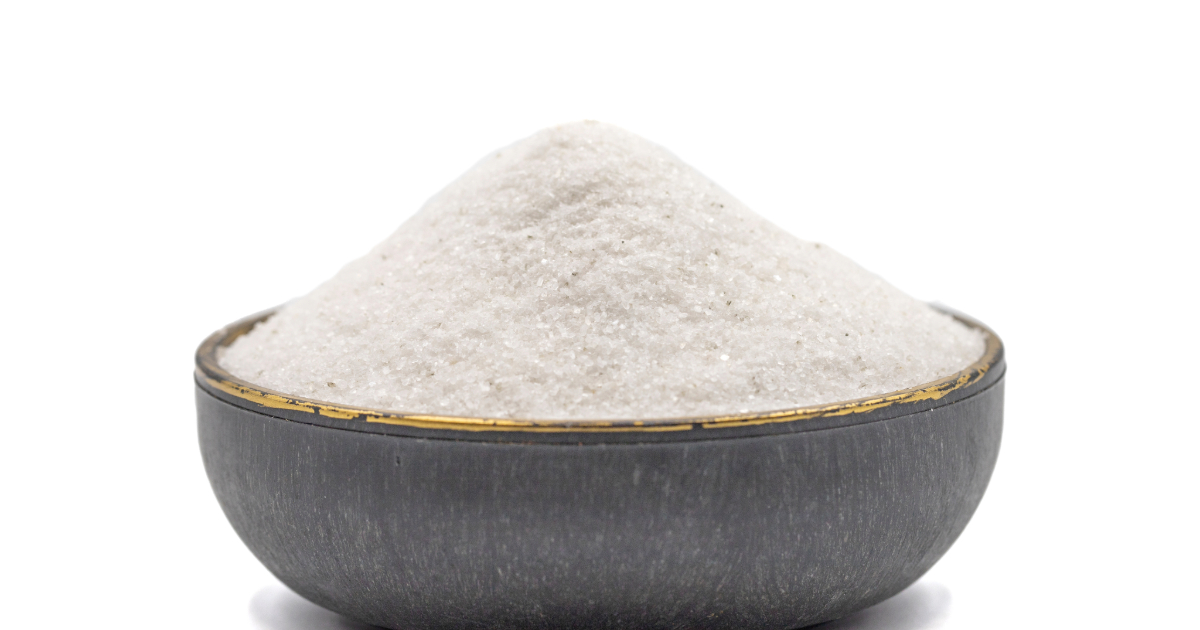If you've ever looked at a cheesemaking recipe, you've likely noticed that salt is a common ingredient. But often the recipes call specifically for "cheese salt" instead of regular table salt. So what exactly is cheese salt and why does it matter for making cheese?

Cheese salt refers to a type of salt that does not contain iodine or anti-caking agents. Using the right type of salt is critical in cheesemaking for allowing the good bacteria to grow while preventing undesirable bacteria.
Why Cheese Salt Is Used in Cheesemaking
Salt plays several important roles in the cheesemaking process:
- Enhances flavor - Salt brings out flavor in cheese and balances taste.
- Preservative - Salt inhibits the growth of bad bacteria that could cause cheese to spoil quickly. This allows cheese to age properly.
- Controls moisture - Salt helps expel moisture (whey) from the curds. Drier curds leads to better quality cheese.
- Aids aging - Proper salt content allows beneficial bacteria to grow during the aging process to develop complex flavors in the cheese.
So in short, salt is not added merely for salty taste. It's a critical ingredient that enables great tasting, long-lasting cheese full of good bacteria.
The Problem with Regular Table Salt
Table salt or iodized salt contains additives that are problematic for cheesemaking:
- Iodine - Added to table salt to prevent iodine deficiency in humans. However, iodine inhibits the good bacteria needed for aging cheese.
- Anti-caking agents - Prevents salt from clumping in humidity. But these additives introduce chemicals that can hinder flavor.
So that's why recipes specify cheese salt. Using a pure additive-free salt allows the good bacteria to grow and age properly while preventing spoilage.
What to Look for in Cheese Salt
Cheese salt, also called non-iodized salt or pickling salt, contains no additives - just pure sodium chloride. Here's what to look for when buying cheese salt:
- No iodine
- No anti-caking agents - e.g. magnesium carbonate, sodium ferrocyanide, etc.
- No preservatives
- Non-GMO - non genetically-modified
- Food-grade purity - at least 99% sodium chloride
Kosher salt also fits these criteria and works perfectly fine as cheese salt.
The key is to avoid any salt with potentially harmful additives to allow the best possible cheesemaking results.
Key Takeaway: Cheese salt contains no additives - just pure sodium chloride suitable for culturing bacteria.
Types of Cheese Salt - Flakes vs. Rocks
Cheese salt comes in a variety of textures - fine powder, flakes, small grains, and large crystal "rocks". Flaked salt is generally preferred for cheesemaking over rock salt.
The size of the grains affects how fast they dissolve when making brine or salting curds:
- Fine powder - Dissolves instantly so not ideal. Too fast absorption impacts flavor.
- Flakes - The optimal size range. Dissolves at the right pace for proper absorption.
- Small grains - Still a good choice. Dissolves moderately slow.
- Large rocks - Difficult to fully dissolve and integrate evenly.
With salt flakes, the moderate dissolution timeline allows the salt to be absorbed gradually at the right rate. This leads to well-salted cheese with an even distribution.
Flake salt offers the best control for evenly salting curds or creating saturating brine. Powder and rocks don't give the cheesemaker as much control over proper absorption.
Using Salt When Making Soft Cheese
When making soft cheeses like chevre, queso fresco, or ricotta, salt is simply sprinkled directly onto the finished cheese. Here are some tips:
- Use flake or grain salt - avoid fine powder.
- Add approx. 1 teaspoon salt per 8 oz / 250g soft cheese.
- Sprinkle evenly over all surfaces for uniform flavor.
- Let salt absorb 30 minutes before packaging or eating.
Salting involves evenly coating the exterior of the cheese. Moisture will gradually seep out allowing the salt to be absorbed inward.
With soft cheese, the key is applying an even layer all over the outside so saltiness is balanced throughout.
Using Brine for Salting Hard Cheese
For hard cheeses with a lower moisture content like cheddar or gouda, surface salting alone cannot penetrate deep enough. These cheeses need to soak in a salty brine solution for proper salt absorption and distribution.
Brine pulls moisture out of the cheese allowing salt to diffuse inward reaching the center. This inhibits bad bacteria inside and out.
Here are some pointers on making cheese brine:
- Fully saturate water with salt until no more dissolves
- Stir continuously while dissolving to prevent solid clumps
- Use non-iodized flake or grain salt
- Temperature of brine should match cheese temp
The brine salinity (saltiness) depends on the variety of cheese. Test with a salinity meter or hydrometer when possible.
Properly saturated brine ensures salt diffuses through the cheese slowly so the interior doesn't become too salty too fast. This allows for controlled absorption resulting in an evenly salted hard cheese.
How Much Salt to Use in Cheesemaking
Salt enhances flavor but too much can make it unpleasantly salty. Salt content depends on cheese variety but here are some general guidelines on quantity:
| Cheese Type | Salt Quantity |
|---|---|
| Soft cheese | 1 tsp per 8 oz / 250g |
| Hard grating cheese (parmesan) | Up to 2.8% of cheese weight |
| Hard table cheese (cheddar) | 1-2% of cheese weight |
| Blue cheese | 3-5% of cheese weight |
For soft cheese, it's easy to sprinkle on a measured amount. With hard cheeses, it's trickier to predict exact salt absorption through brining. Testing samples during aging helps monitor saltiness.
Start on the lower side, then increase salt to find the optimal level that gives great flavor before it becomes overly salty.
Why Non-Iodized Salt is Essential
Now that you understand the fundamentals of salt's role in cheesemaking, let's drive home why it's absolutely essential to use non-iodized salt like cheese salt or kosher salt.
As explained earlier, iodine inhibits the good bacteria necessary for proper cheese aging. Using iodized table salt can prevent your cheese from developing full flavor.
So while cheese salt may seem interchangeable with plain old salt, this tiny difference actually has a huge impact on your results.
Spending a couple dollars on a box of cheese salt instead of grabbing the Morton's from your cupboard will save a whole batch of ruined cheese!
When to Add Salt in the Cheesemaking Process
Knowing when to add salt is also key for quality cheese. Here's a typical process for incorporating salt:
- Add culture (good bacteria) and rennet to warm milk
- Allow curds to form
- Cut curds and let sit 10-15 minutes
- Slowly increase temperature while stirring - expels whey
- Drain all whey once curds reach desired firmness
- Add salt and mix thoroughly with curds - helps expel remaining moisture
- Hoop curds into mold and press (for hard cheese)
- Brine salted cheese (for hard cheese)
Salt helps lock in moisture content by allowing partial reabsorption of the expelled whey. This leaves the curd with a controlled water content needed for proper aging.
Timing when salt gets mixed in is vital - too early prevents adequate whey removal but too late risks uneven absorption.
Storing Cheese Salt Properly
Avoid problems with clumping by storing cheese salt correctly:
- Keep in air-tight container
- Store in cool, dry place
- Ensure no exposure to moisture
- Use clean dry spoon for scooping
- Close tightly after each use
Like regular salt, cheese salt wants to absorb water. Keeping it sealed in an airtight container prevents clumps from forming.
Proper storage keeps cheese salt free-flowing so it's ready to use for your next cheesemaking adventure!
FAQs
Why is Morton Kosher Salt not good for cheesemaking?
Some types of Morton Kosher Salt contain anti-caking agents that may inhibit good bacteria growth. Only additive-free kosher salt is suitable as cheese salt.
Can I use Himalayan Pink Salt?
Yes, Himalayan pink salt is minimally processed retaining many nutrients. Since it has no additives, it performs well as cheese salt. The pink color adds visual interest too!
Is regular sea salt ok for making cheese?
Sea salt is fine as long as it doesn't contain iodine or flow agents. Unfortunately many mainstream brands add anticaking chemicals. Your best bet is using specialty additive-free sea salt bought from a cheesemaking or homesteading supply shop.
What is a good cheese salt brand to buy?
Quality brands to look for include The Ingredients Plus Cheese Salt and Hoosier Hill Farm Cheese Salt. As long as the label clearly states no additives, any brand that fits the criteria will work wonderfully. Buying from a trusted cheesemaking supplier gives peace of mind the salt purity meets requirements.
Why is pickling salt good for making cheese?
Like cheese salt, pickling salt contains no iodine or anticaking agents in order to allow proper fermentation by beneficial microbes. Using pickling salt for cheesemaking achieves the same quality results.
Conclusion
Understanding exactly why cheese salt is an indispensable ingredient is key for crafting amazing homemade cheese. The right salt controls moisture, boosts flavor, and allows good bacteria to grow - all critical for delicious artisan cheese you'll be proud to share.
While substituting basic table salt may seem harmless enough, this seemingly small change sabotages the work of those tiny microbes that transform plain curds into complex, tasty cheese.

